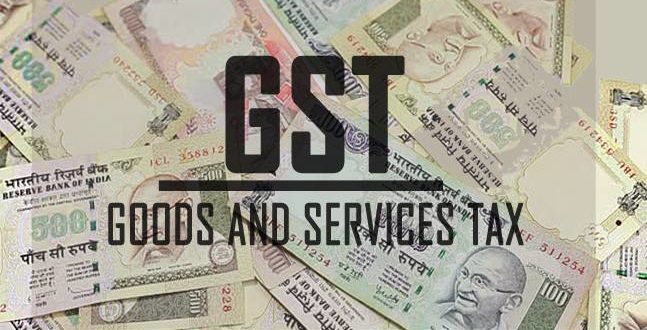Change is the inevitable part of every economy, but what better it would be than a change for the advancement of a nation. In India, there is a buzz of a new tax regime everywhere, referred to as Goods and Service tax (GST). This GST is in every sense “The biggest tax reform in India post-independence”. But, do we all know what this GST has in store for us? In the real sense, the answer is NO. So we, at Postman News , want our readers to be educated about it and therefore, starting a series of articles on this topic.
So, what is this GST all about?
The Central Govt. is taking many major and tough decisions for fulfilling its promise to curb black money in India like demonetization, introduction of GAARs. One such major decision is implementation of GST. Only an honest businessman or taxpayer can survive in the GST regime as there are various checks at the very basic levels of a transaction. From issuing of invoice to filing of return and taking input tax credit, everything will have to be done online in the GST-led environment. This will change the style of doing business in our country. IMF, the monetary wing of United Nations, estimates that GST will add 2% to the Indian GDP. But how? How will GST impact me? Let’s have a look at this.

Currently there are a series of taxes imposed in our economy like
- Excise Duty, which is attracted on production
- Service Tax, which is attracted when goods move from factory to shops and finally
- VAT, which is payable when goods are sold to the consumers. This type of current tax regime creates a cascading effect i.e. taxes are paid on taxes paid at earlier stages. But under GST, there will be a single tax on every type of transaction. From production to sales to final consumers, only GST will be payable and the seller will get the input of taxes paid at earlier stage, which will ultimately eliminate the cascading effect, which will in turn reduce the prices of goods.
Am I liable to pay GST in my business?
There are currently different monetary limits for registrations under different laws such as Rs.10,00,000 for VAT (there are different limits for different states) and Rs.9,00,000 for Service Tax. A person needs to keep a check on different laws while doing business so that he is not liable to pay fines for non- compliance, but in GST, this problem will also be solved. There will be a single limit of Rs.20,00,000/- for everyone to get registered. So what if anyone has two different shops? Will he need to register under GST separately for each of them? Or the limit will be seen separately for each shop? The answer to this question is very simple; the limit of 20 lakhs will be seen for the PAN issued under the Income Tax Laws. This means that the total turnover of all the entities having same PAN will be clubbed together to calculate the limit of 20 lakh rupees.
How will GST impact the working environment of business in India?
GST, when implemented, will create a lot more transparent business environment in the country. With pro-active Govt. departments and strict monitoring of transactions, there will be no or little room for tax evasion. But with more transparency comes more risks. Since, all the compliance work of GST like registration, return filing etc will be done online, Govt. will need to make GSTN (GST Network) a safe fortress, otherwise the costs of GST will outweigh the benefits by a big margin. With a monthly reporting system (monthly GST Returns) and Reverse charge on cash purchases (i.e. buyer paying tax on purchases from unregistered suppliers), GST will reduce the black money in the country, thus reducing the bogus transactions. Everything in GST will be done online so there will be lesser scope left for corruption because there will be proper online records maintained of everything done by a dealer or Assessing Officer.
What will be its immediate impact on my business costs?
Costs of doing business will also be impacted by implementation of GST, but this impact will be of mixed nature. With reduction in costs on account of more input tax credits (now ITC will be available on “almost” all expenses), more efficient and transparent working and rating of all the GST dealers by the Govt., there will be a sharp rise in compliance costs. With taxation of Stock Transfers (i.e. goods dispatched from one shop of a dealer to his other shop in some other state) , which was conditionally exempt in the earlier tax regime, Govt. has created a greater tax net and unnecessary tax burden on the manufacturing and trading industry by blocking a lot of their funds.
To sum it up, GST will bring a lot of changes in the working style of the business houses and will impact a lot of consumers in form of product pricings. But, in the long run, it will be a good move for the betterment of country as “ONE NATION ONE TAX” will make market equal for all the dealers. There may be some hurdles in the initial stages, but India, being THE country of “Jugaad and intelligence”, will definitely streamline the whole GST implementation.
Let us know what you think about GST and this article in the comments section below. Do post if you have any queries about GST Implementation or the Migration Process.
Jai Hind!
 Postman News Latest News, Live Breaking News, Today News …
Postman News Latest News, Live Breaking News, Today News …






